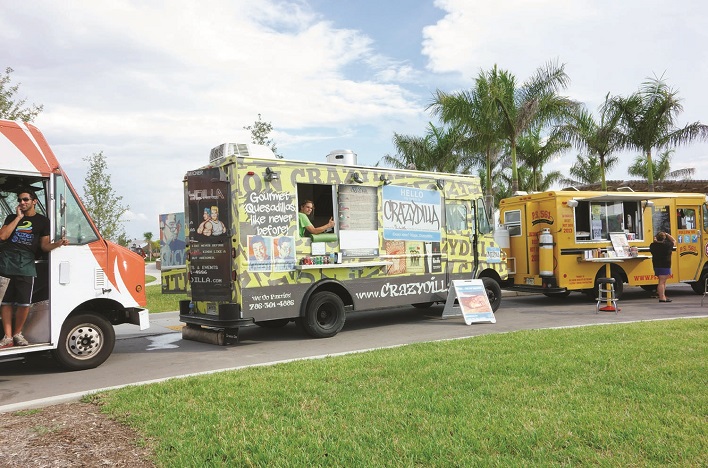Selling great food is essential, but it’s only part of the job.
One of the most important questions that anyone who is interested in starting a food truck needs to think about is: What type of food truck do you want to be?
When I first started thinking about opening a food business, I was torn between starting a brick-and-mortar restaurant or a food truck. My final decision came down to what I thought was the best way to get my style of barbecue known around Kansas City. Operating a food truck has helped me introduce my work to huge numbers of people.
Before you even start serving food, you have a lot of decisions to make:
» Are you going to operate out of a truck or a trailer?
» What type of food will be on your menu?
» What will be the name of your food truck?
» What type of equipment will you have in your truck?
As you figure out the answers to these basic questions, your business will begin to form. Then comes the really confusing part.
Permits and Licenses
Starting out, a lot of people in the business think they’ll be OK if they just get a permit from their city of residence—for example, Kansas City, Mo. But if you operate in neighboring communities, you may need to get a permit from their city governments, too. That’s not counting the state and federal permits required of a food-truck business. It can be a really confusing process for the average person, because the rules governing the industry are very complicated and forever changing.
You need to have your Employee Identification Number, your articles of organization, the right kind of insurance and, most importantly, your health permit.
It’s More Than Just Cooking
Once you have jumped through all the governmental hoops, it’s time to take your business on the road—and that can throw you for a loop, too. There’s more to the business than just cooking.
It took me about two years to learn how to manage the time needed to prepare my food versus actual time spent working in the truck. Balancing prep time, serving time and cleaning time is something that will differ for each individual, but being prepared to be flexible and learn can really help.
Most people who are starting a food truck have been great home cooks or backyard grillers whose family told them they should sell their food. Some have even worked as cooks at restaurants and think they are familiar with what goes on in the background. But you need to be prepared to do more than just serve food.
For example, you have to be ready to market your brand.
Get the Word Out
Aside from paid advertising, one of the best ways to get the word out about your business is social media. The growth of social media has steadily helped increase local and national food-truck awareness.
Food groupies, called “foodies,” are a dedicated type of customer who, once they become a fan of your food, will share your business with their friends and family members through social media.
You want to make every customer walk away wanting to come back and bring a friend, and social media can definitely aid you there. There are resources, maps and social apps that can make it easy for customers to find a truck, and ultimately hire your truck for their party or event.
Help Is Out There
The best advice I can offer to anyone interested in starting a food truck? Ask questions. Working with the public library and the small business centers is the easy and smart way to get your business up and running.
The Mid-Continent Public Library and Ennovation Center offer workshops that teach aspiring food-truck operators the most important parts of launching a business. The Kansas City Food Truck Association is also developing a Food Truck University for newcomers.
Try reaching out to established operators. Kansas City has an active community of food-truck businesses, featuring people from all walks of life, and many of them are willing to answer questions.
Anyone with a passion for food, who’s willing to work hard and smart, has the potential to create a successful food truck.

